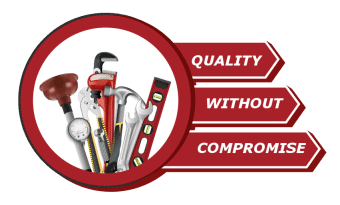Preventative Maintenance Plans
Avoid Expensive Downtime!
commercial preventative maintenance
Regular preventative maintenance is the best way to ensure trouble-free operation and peak performance. A lot rides on your heating and cooling systems. Keeping your HVAC & Boiler systems operating at their peak efficiency makes sense.

Regular maintenance not only avoids unexpected repairs, but it lowers monthly operating costs. Reducing your energy consumption even marginally can add up to significant savings. Before defining the appropriate preventive maintenance program for your building,
Caon Services Inc. suggests a complete analysis of heating, ventilation, and air conditioning systems. First accounting for the age, condition, and demands placed upon your HVAC system, our team can define the most cost-effective and appropriate Heating and Air Conditioning Preventative Maintenance Plan for your building.
According to a 2004 Building Owners and Managers Association (BOMA) survey, almost a quarter of the annual operating expenses of an office building typically are spent on service repairs and maintenance costs. Go Green – Promoting sound environmental stewardship, we help you ‘Go Green’ to reduce the emissions and energy consumption of your heating, ventilation, and air conditioning systems.

Expensive Downtime
Equipment tends to fail when you need it the most which leads to unexpected costs, potential loss of production and the unavailability of replacement parts. Potential signs of equipment failure can remain unnoticed unless a qualified individual routinely inspects the equipment for signs of potential failure.
Priority service & Preferred Pricing
Caon Services Inc. provides priority service and preferred rates for our customers who have an annual maintenance or service agreements.
Water Treatment
Hydronic heating systems are susceptible to corrosion, scale, sludge build up and the formation of Iron oxides. The only way to prevent these problems from occurring is by proper testing and adjusting the chemical levels within the system.
Causes of degraded energy performance
Dirty heat exchangers (Boiler) – Can reduce the energy transfer significantly causing the boiler to operate longer decreasing energy efficiency.
Pumps: Ensuring that circulating pumps are operating properly and within their design parameters can reduce energy costs and save you money. During our maintenance visits we check health of the systems pumps to ensure they are working at optimal efficiency.
Combustion Efficiency -Operating your boiler with an optimum amount of gas and air will minimize heat loss up the stack and improve combustion efficiency. Though testing and adjusting of combustion parameters we can ensure a safe an efficient operation of your gas fired appliances ranging from furnaces, roof top units, boilers and makeup air units.
Faulty fan belts: Belts transfer the kinetic energy from the motor to the fan. Improper tension or a damaged belt can drastically reduce the transfer of energy from the motor to the fan reducing energy efficiency substantially. Belts and pulleys require adjustment and calibration to ensure proper operation. These adjustments can translate to energy savings for the individual piece of equipment as much as 10 %.
Thermostat and controls problems: Improper thermostat settings, cycling of fans and equipment. Economizer failure – Does not allow for the HVAC equipment to properly regulate outside air.
Hot water Tanks: Hot water tanks need to be cleaned regularly to avoid sediment from forming on the bottom on the hot water tank. Once sediment forms it works as an insulator between the burners and the water you are trying to heat. Not maintaining your hot water tank increases burner run time and decreases efficiently.
Changing Air Filters: Regularly will help to ensure you are not wasting energy. Filters should be changed at a minimum every 3 months as an industry standard. A dirty filter will slow down air flow and make the system work harder to keep you warm or cool — wasting energy.
A clean filter will also prevent dust and dirt from building up in the system — leading to expensive maintenance and/or early system failure. Sensor problems-Faulty sensors can increase the operating temperature of the system above the recommended heating curves which results in poor energy efficiency.
Sub-optimal refrigerant charge: This can result in a reduction in air conditioning efficiency by 11%
24 HOUR EMERGENCY CONTACT
CAON CAN HELP YOU ANY DAY - ANYTIME WITH OUR 24 HOUR EMERGENCY LINE:
GET YOUR NO OBLIGATION QUOTE TODAY!

certified professionals


